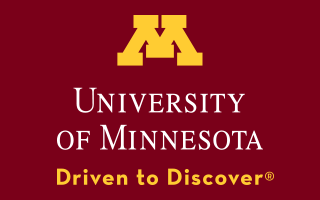
The 8th i-CoMSE Workshop: Machine Learning for Molecular Science
Registration: Open
Location: University of Minnesota Twin Cities
Workshop dates: July 22-26, 2024
Application deadline: May 15, 2024
Decision on application: May 31, 2024
This workshop is supported by funding from National Science Foundation Office of Advanced Cyberinfrastructure
Description: This workshop will provide an overview of machine learning tools applied to study molecular systems with a focus on computational molecular science. It will feature a mix of lectures and hands-on exercises running machine learning algorithms with molecular simulations on national supercomputing resources. The workshop will include a session on diversity, equity, and inclusion aspects of computational sciences. Sessions will be taught in Software Carpentry style, with approximately equal time divided between lectures and hands-on programming exercises.
Description: This workshop will provide an overview of machine learning tools applied to study molecular systems with a focus on computational molecular science. It will feature a mix of lectures and hands-on exercises running machine learning algorithms with molecular simulations on national supercomputing resources. The workshop will include a session on diversity, equity, and inclusion aspects of computational sciences. Sessions will be taught in Software Carpentry style, with approximately equal time divided between lectures and hands-on programming exercises.
Registration: The application for the workshop can be accessed here.
Expected number of participants: 40
Equipment Needed: Students will need a laptop and have Jupyter notebooks installed. Computing resources for performing exercises will be provided in Bridges-2 at PSC.
Eligibility: Participation is limited to graduate students, undergraduate students (with junior or senior standing), postdoctoral, early career faculty, with some experience in molecular simulations and Python scripting. Applicants must be associated with an US based educational institution, national lab, or industry.
Registration Fee: The registration fee will be waived for participants from non-PhD-granting and primary undergraduate institutions (PUIs).
Financial Support: Financial support is available to cover housing (in university dormitory) for some non-local participants. A limited number of travel stipends (up to $500) are available to help broaden participation.
Organizers/Instructors:
- Yamil Colón, Notre Dame University
- Eric Jankowski, Boise State University
- Neeraj Rai, Mississippi State University
- Sapna Sarupria, University of Minnesota Twin Cities
- Jindal Shah, Oklahoma State University
- Michael Shirts, University of Colorado, Boulder
- Shuwen Yue, Cornell University
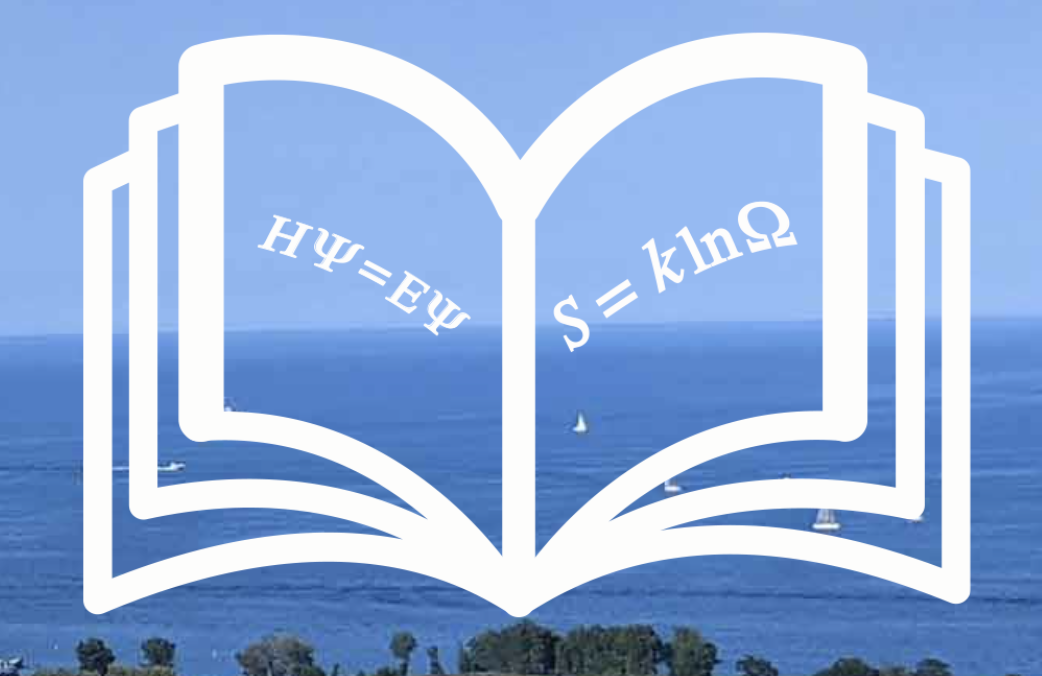
9th i-CoMSE workshop: Virtual School on Machine Learning For Molecules 2025
Registration: Deadline: April 21, 2025
Location: Online
Workshop dates: April 28-May 2, 2025
Application deadline: All registered students admitted
Decision on application: N/A
This workshop is supported by funding from National Science Foundation Office of Advanced Cyberinfrastructure
Description: This workshop will provide an overview of machine learning applied to molecules and materials systems. It will feature of mix of lectures and hands-on interactive exercises in Python. The session will run for five days, 3 hours a day, 3-6 EDT / 2-5 CDT / 1-4 MDT / 12-3 PDT. Registration: The registration form for the workshop is at: https://forms.gle/42Vzmw13F9HtJfaNA. Deadline for registration April 21, 2025.
Description: This workshop will provide an overview of machine learning applied to molecules and materials systems. It will feature of mix of lectures and hands-on interactive exercises in Python. The session will run for five days, 3 hours a day, 3-6 EDT / 2-5 CDT / 1-4 MDT / 12-3 PDT.
Registration: The registration form for the workshop is at: https://forms.gle/42Vzmw13F9HtJfaNA. Deadline for registration April 21, 2025.
Preliminary Schedule
- Monday, April 28th
- Review of machine learning concepts
- Tuesday, April 29th
- Molecular featurization and representations for machine learining
- Wednesday, April 30th
- Neural nets and graph neural nets in pytorch
- Thursday, May 1st
- Active Learning for molecular design
- Friday, May 2nd
- Generative modeling for molecules
Eligibility: Graduate student, undergraduate student (with junior or senior standing), postdoctoral, early career faculty. The expectation is that students will have some experience in Python and ML.
Registration Fee: None
Financial Aid: N/A
Expected number of participants: 100
Equipment Needed: Students will need laptops or desktops that can both access Zoom and have Jupyter notebooks installed. Computing resources for performing exercises will be on Google Colab
Organizers/Instructors
- Camille Bilodeau, University of Virginia
- Yamil Colon, University of Notre Dame
- Eric Jankowski, Boise State University
- Neeraj Rai, Mississippi State University
- Sapna Sarupria, University of Minnesota
- Jindal Shah, Oklahoma State University
- Michael Shirts, University of Colorado Boulder
- Shuwen Yue, Cornell University
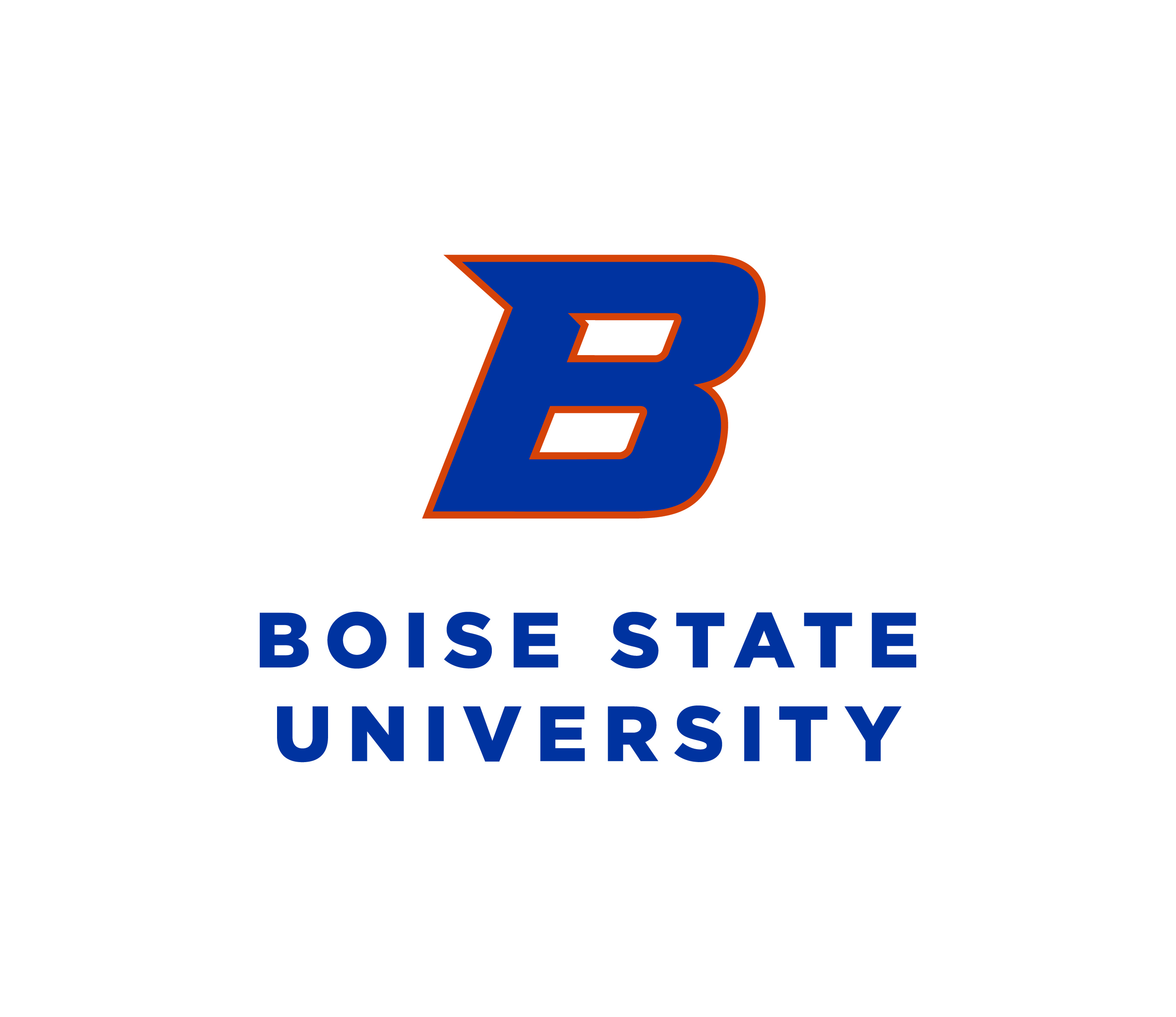
The 7th i-CoMSE Workshop: Molecular Dynamics Summer School 2024
Registration: Open
Location: Boise State University, Boise, ID
Workshop dates: July 8-12, 2024
Application deadline: April 24, 2024
Decision on application: May 8, 2024
This workshop is supported by funding from National Science Foundation
Description: Molecular dynamics (MD) simulation techniques have become an essential tools in understanding thermophysical and equilibrium properties of systems ranging from organic liquids to ionic liquids, polymers, biomolecules, solutions, zeolites, metal organic frameworks and covalent organic frameworks, etc. This course will focus on the theoretical underpinnings of MD simulations, statistical mechanics principles, and practical tools and techniques for setting up and computing macroscopic properties. Open-source MD engines including GROMACS and HOOMD will be used to demonstrate fundamental concepts.
Description: Molecular dynamics (MD) simulation techniques have become an essential tools in understanding thermophysical and equilibrium properties of systems ranging from organic liquids to ionic liquids, polymers, biomolecules, solutions, zeolites, metal organic frameworks and covalent organic frameworks, etc. This course will focus on the theoretical underpinnings of MD simulations, statistical mechanics principles, and practical tools and techniques for setting up and computing macroscopic properties. Open-source MD engines including GROMACS and HOOMD will be used to demonstrate fundamental concepts.
Eligibility: graduate student, undergraduate student (with junior or senior standing), postdoctoral, early career faculty, and relevant industry. Apply here
Registration Fee: $150 (waived for participants from non-PhD granting institutes) after application.
Financial Aid: Financial support is available to cover housing (in university dormitory), meals, and parking cost for all non-local participants. A limited number of travel stipends ($500) are available to help broaden participation.
Expected number of participants: 40
Tranportation:
- Nearest Airport: Boise, BOI; Uber/Lyft transportation to the University (5 minutes)
Equipment Needed: Students will need a laptop.
Organizers/Instructors
- Eric Jankowski, Boise State University
- Neeraj Rai, Mississippi State University
- Sapna Sarupria, University of Minnesota
- Jindal Shah, Oklahoma State University
- Michael Shirts, University of Colorado Boulder
- Amir Haji-Akbari, Yale University
- Rachael Skye, Cornell University (Dshemuchadse lab)
- Hemanth Haridas, University of Utah (Clark Lab)

6th iCoMSE workshop: Enhanced Sampling Virtual School 2024
Registration: Open
Location: Online
Workshop dates: Feb 12-16, 2024
Application deadline: Feb 2, 2024
Decision on application: Feb 7, 2024
This workshop is supported by funding from National Science Foundation Office of Advanced Cyberinfrastructure
Description: This workshop will provide an overview of modern enhanced sampling algorithms, including replica exchange, umbrella sampling, metadynamics, and path sampling methods. It will feature of mix of lectures and hands-on exercises running GROMACS on national supercomputing resources, and will run for 3 hours each day. The workshop will include a session on diversity, equity, and inclusion aspects of computational sciences. The session will run for five days, 3-6 EDT / 2-5 CDT / 1-4 MDT / 12-3 PDT.
Description: This workshop will provide an overview of modern enhanced sampling algorithms, including replica exchange, umbrella sampling, metadynamics, and path sampling methods. It will feature of mix of lectures and hands-on exercises running GROMACS on national supercomputing resources, and will run for 3 hours each day. The workshop will include a session on diversity, equity, and inclusion aspects of computational sciences. The session will run for five days, 3-6 EDT / 2-5 CDT / 1-4 MDT / 12-3 PDT. Note that the workshop will be similar (though not exactly the same) as last years’ workshop, whose material is posted here for reference: https://github.com/icomse/3rd_workshop_advanced_sampling
Registration: The application for the workshop is at: https://forms.gle/rzR5aJ5cPhFraQ4i6.
Preliminary Schedule
- Monday, February 12th
- Free energy, probability, and sampling theory
- Expanded ensemble simulations
- Diversity, equity and inclusion in computational science
- Tuesday, February 13th
- Metadynamics
- Wednesday, February 14th
- Running coupled simulations on HPC resources
- Temperature and Hamiltonian replica exchange simulations
- Thursday, February 15th
- Transition path sampling
- Forward flux sampling
- Friday, February 16th
- Exploring combinations and applications
- Wrapup
Eligibility: Graduate student, undergraduate student (with junior or senior standing), postdoctoral, early career faculty. The expectation is that students will have some experience in molecular simulation and Python scripting. Attendees must be at a U.S. institution.
Registration Fee: None
Financial Aid: N/A
Expected number of participants: 50
Equipment Needed: Students will need laptops or desktops that can both access Zoom and have Jupyter notebooks installed. Computing resources for performing exercises will be provided.
Organizers/Instructors
- Eric Jankowski, Boise State University
- Neeraj Rai, Mississippi State University
- Sapna Sarupria, University of Minnesota
- Jindal Shah, Oklahoma State University
- Michael Shirts, University of Colorado Boulder
- Omar Valsson, University of North Texas

The 5th i-CoMSE Workshop: Machine Learning for Molecular Science
Registration: Closed
Location: University of Minnesota Twin Cities
Workshop dates: July 10-14, 2023
Application deadline: May 29, 2023
Decision on application: June 10, 2023
This workshop is supported by funding from National Science Foundation Office of Advanced Cyberinfrastructure
Description: This workshop will provide an overview of machine learning tools applied to study molecular systems with a focus on computational molecular science. It will feature a mix of lectures and hands-on exercises running machine learning algorithms with molecular simulations on national supercomputing resources. The workshop will include a session on diversity, equity, and inclusion aspects of computational sciences. Sessions will be taught in Software Carpentry style, with approximately equal time divided between lectures and hands-on programming exercises.
Description: This workshop will provide an overview of machine learning tools applied to study molecular systems with a focus on computational molecular science. It will feature a mix of lectures and hands-on exercises running machine learning algorithms with molecular simulations on national supercomputing resources. The workshop will include a session on diversity, equity, and inclusion aspects of computational sciences. Sessions will be taught in Software Carpentry style, with approximately equal time divided between lectures and hands-on programming exercises.
Registration: The application for the workshop can be accessed here
Preliminary Schedule:
- Monday July 10th, 2023
- Feature representation
- Dimensionality reduction
- Unsupervised learning
- Tuesday, July 11th, 2023
- Clustering and visualization
- Regression and supervised learning
- Training, testing, and validation
- Simple regression models
- D&I workshop
- Wednesday, July 12th, 2023
- Structured vs unstructured data
- Regularized vs tree based methods
- Interpretability
- Workshop Outing
- Thursday, July 13th, 2023
- Deep learning
- Advanced examples of ML applications to molecular science
- ML on cyberinfrastructure
- Friday, July 14th, 2023
- Generative models and inverse design
- General Q&A
- Wrap up
Expected number of participants: 40
Equipment Needed: Students will need a laptop and have Jupyter notebooks installed. Computing resources for performing exercises will be provided in Bridges-2 at PSC.
Dormitory Check-In: July 9th, 2023 (starts at 1 pm) and Check out: July 14th 2023 (by noon)
Eligibility: Participation is limited to graduate students, undergraduate students (with junior or senior standing), postdoctoral, early career faculty, with some experience in molecular simulations and Python scripting. Applicants must be associated with an US based educational institution, national lab, or industry.
Registration Fee: None for academic participants
Financial Support: Financial support is available to cover housing (in university dormitory), meals, and parking cost for all non-local participants. A limited number of travel stipends (up to $500) are available to help broaden participation.
Organizers/Instructors:
- Chris Bartel, University of Minnesota Twin Cities
- Rose Cersonsky, University of Wisconsin-Madison
- Eric Jankowski, Boise State University
- Neeraj Rai, Mississippi State University
- Sapna Sarupria, University of Minnesota Twin Cities
- Jindal Shah, Oklahoma State University
- Michael Shirts, University of Colorado, Boulder

Fundamentals and Applications of Density Functional Theory
Registration: Closed
Location: Boise State University
Workshop dates: Jun 5-9, 2023
Application deadline: Apr 14, 2023
Decision on application: Apr 21, 2023
This workshop is supported by funding from National Science Foundation Office of Advanced Cyberinfrastructure
Description: This workshop will provide an overview of density functional theory and its applications in chemical and materials science. It will feature a mix of lectures and hands-on exercises running electronic structure codes on national supercomputing resources. The workshop will include a session on diversity, equity, and inclusion aspects of computational sciences. Sessions will be taught in Software Carpentry style, with approximately equal time divided between lectures and hands-on exercises running and analyzing simulations.
Description: This workshop will provide an overview of density functional theory and its applications in chemical and materials science. It will feature a mix of lectures and hands-on exercises running electronic structure codes on national supercomputing resources. The workshop will include a session on diversity, equity, and inclusion aspects of computational sciences. Sessions will be taught in Software Carpentry style, with approximately equal time divided between lectures and hands-on exercises running and analyzing simulations.
Registration: The application for the workshop is can be accessed here
Preliminary Schedule:
- Monday, June 5th
- Fundamentals of electronic structure theory
- Elements of density functional theory (functional hierarchy)
- Diversity, equity and inclusion in computational science
- Tuesday, June 6th
- Ground state electronic properties (gas phase/isolated molecules)
- Running coupled simulations on HPC resources
- Applications in chemical catalysis
- Wednesday, June 7th
- Range separated functionals
- IP tuning
- Gap renormalization (medium effects)
- Thursday, June 8th
- Applications in materials science (electronic and optical properties)
- Excited state properties
- Friday, June 9th
- Hands-projects based on attendee interests
- General Q/A
- Wrapup
Eligibility: Participation is limited to graduate students, undergraduate students (with junior or senior standing), postdoctoral, early career faculty, with some experience in DFT calculations and Python scripting. Applicants must be associated with an US based educational institution, national lab, or industry.
Registration Fee: None
Financial support: Financial support is available to cover housing (in university dormitory), meals, and parking cost for all non-local participants. A limited number of travel stipends (up to $500) are available to help broaden participation.
Expected number of participants: 40
Equipment Needed: Students will need a laptop and have Jupyter notebooks installed. Computing resources for performing exercises will be provided in Bridges-2 at PSC.
Organizers/Instructors:
- Oliviero Andreussi, Boise State University
- John Herbert, Ohio State University
- Eric Jankowski, Boise State University
- Lan (Samantha) Li, Boise State University
- Neeraj Rai, Mississippi State University
- Sapna Sarupria, University of Minnesota
- Jindal Shah, Oklahoma State University
- Michael Shirts, University of Colorado, Boulder

Enhanced Sampling Virtual School 2023
Registration: Closed
Location: Online
Workshop dates: Mar 20-24, 2023
Application deadline: Feb 24, 2023
Decision on application: Mar 6, 2023
This workshop is supported by funding from National Science Foundation Office of Advanced Cyberinfrastructure
Description: This workshop will provide an overview of modern enhanced sampling algorithms, including replica exchange, umbrella sampling, metadynamics, and path sampling methods. It will feature of mix of lectures and hands-on exercises running GROMACS on national supercomputing resources, and will run for 3 hours each day. The workshop will include a session on diversity, equity, and inclusion aspects of computational sciences. The session will run for five days, 3-6 EDT / 2-5 CDT / 1-4 MDT / 12-3 PDT.
Description: This workshop will provide an overview of modern enhanced sampling algorithms, including replica exchange, umbrella sampling, metadynamics, and path sampling methods. It will feature of mix of lectures and hands-on exercises running GROMACS on national supercomputing resources, and will run for 3 hours each day. The workshop will include a session on diversity, equity, and inclusion aspects of computational sciences. The session will run for five days, 3-6 EDT / 2-5 CDT / 1-4 MDT / 12-3 PDT.
Registration: The application for the workshop is at: https://forms.gle/LwJv5qHdA57fwJmN7.
Preliminary Schedule
- Monday, March 20th
- Free energy, probability, and sampling theory
- Expanded ensemble simulations
- Diversity, equity and inclusion in computational science
- Tuesday, March 21st
- Potentials of mean force
- Metadynamics
- Wednesday, March 22nd
- Running coupled simulations on HPC resources
- Temperature and Hamiltonian replica exchange simulations
- Thursday, March 23rd
- Transition path sampling
- Transition interface sampling
- Friday, March 24th
- Forward flux sampling
- Exploring combinations and applications
- Wrapup
Eligibility: Graduate student, undergraduate student (with junior or senior standing), postdoctoral, early career faculty. The expectation is that students will have some experience in molecular simulation and Python scripting. Attendees must be at a U.S. institution.
Registration Fee: None
Financial Aid: N/A
Expected number of participants: 50
Equipment Needed: Students will need laptops or desktops that can both access Zoom and have Jupyter notebooks installed. Computing resources for performing exercises will be provided.
Organizers/Instructors
- Eric Jankowski, Boise State University
- Neeraj Rai, Mississippi State University
- Sapna Sarupria, University of Minnesota
- Jindal Shah, Oklahoma State University
- Michael Shirts, University of Colorado Boulder
- Omar Valsson, University of North Texas
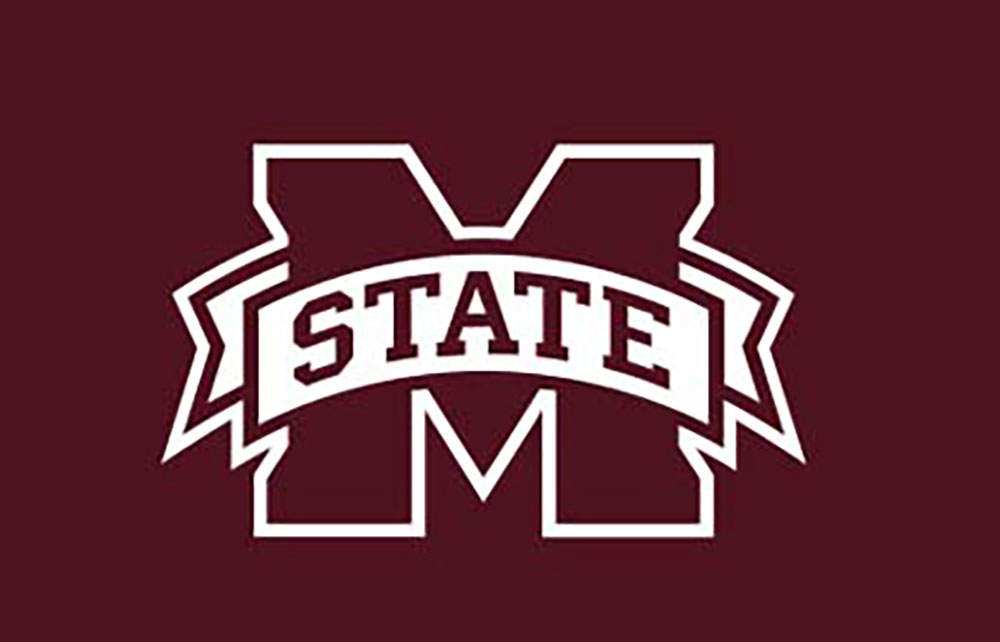
DFT Summer School
Registration: Closed
Location: Missippi State University
Workshop dates: June 12-18, 2022
Application deadline: April 15, 2022
Decision on application: April 29, 2022"
This workshop is supported by funding from National Science Foundation
Density functional theory (DFT) has become an essential tool for modeling chemical reactions due to its relatively low computational cost and favorable scaling with the system size. This course will present a theoretical and practical introduction to computational techniques for studying chemical catalysis and kinetics. Participants will learn practical aspects of DFT calculations and advanced topics such as the effect of solvation on chemical reactions. The open-source software CP2K will be used for the hands-on tutorial sessions.
Density functional theory (DFT) has become an essential tool for modeling chemical reactions due to its relatively low computational cost and favorable scaling with the system size. This course will present a theoretical and practical introduction to computational techniques for studying chemical catalysis and kinetics. Participants will learn practical aspects of DFT calculations and advanced topics such as the effect of solvation on chemical reactions. The open-source software CP2K will be used for the hands-on tutorial sessions.
Eligibility: graduate student, undergraduate student (with junior or senior standing), postdoctoral, early career faculty
Registration Fee: $100 (waived for participants from non-PhD granting institutes)
Financial Aid: Financial support is available to cover housing (in university dormitory), meals, and parking cost for all non-local participants. Limited number of travel stipends ($500) are available to help broaden participation.
Expected number of participants: 40
Directions to housing: N/A
Where to eat: N/A
Equipment Needed: Students are encouraged to bring their laptop.
Organizers/Instructors
- Mike Janik, Pennsylvania State University
- Eric Jankowski, Boise State University
- Andrew J. Medford, Georgia Institute of Technology
- Neeraj Rai, Mississippi State University
Tentative Schedule
June 12: Arrival/Check-in
June 13: Morning: Fundamentals of DFT Afternoon: Fundamentals of Catalysis Evening: Free
June 14: Morning: Introduction to Linux/HPC/CP2K Afternoon: Diversity/Inclusion workshop Evening: HPC/computer set up/computational housekeeping
June 15: Morning-I: Practical aspects of DFT calculations Morning-II: Surfaces/Binding Energy/Vibrational Frequencies Afternoon: Hands-on session Evening: Poster Session
June 16: Morning: Activation Energy, Microkinetics, Rate Expressions Afternoon: Hands-on session Evening: Invited Talk
June 17: Morning: Solvation/Electrochemistry Afternoon: Hand-on session
June 18: Morning: Special Topics/Open Project Discussions Afternoon: Depart
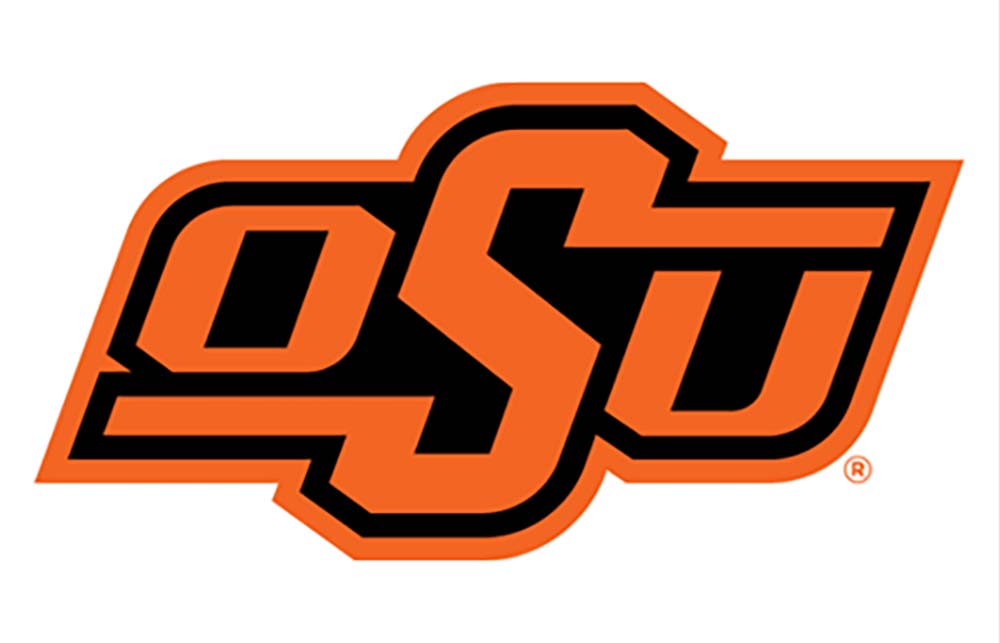
MDMC Summer School 2022
Registration: Closed
Location: Oklahoma State Universiy, Stillwater, OK
Workshop dates: July 10-15, 2022
Application deadline: May 20, 2022
Decision on application: June 1, 2022
This workshop is supported by funding from National Science Foundation
Description: Monte Carlo (MC) and molecular dynamics (MD) simulation techniques have become essential tools in understanding thermophysical and phase equilibria properties of systems ranging from organic liquids to ionic liquids, polymers, biomolecules, solutions, zeolites, metal organic frameworks and covalent organic frameworks, etc. These techniques are based on statistical mechanics principles and enable one to access length scales spanning tens of nanometers and sample timescales up to hundreds of nanoseconds.
Description: Monte Carlo (MC) and molecular dynamics (MD) simulation techniques have become essential tools in understanding thermophysical and phase equilibria properties of systems ranging from organic liquids to ionic liquids, polymers, biomolecules, solutions, zeolites, metal organic frameworks and covalent organic frameworks, etc. These techniques are based on statistical mechanics principles and enable one to access length scales spanning tens of nanometers and sample timescales up to hundreds of nanoseconds. This course will focus on the theoretical underpinnings of MC and MD simulations and techniques for computing macroscopic properties such as self-diffusion coefficients, ionic conductivity, viscosity, vapor-liquid equilibria and gas absorption/adsorption isotherms. The open-source software packages Gromacs and Cassandra will be used for the hands-on tutorial sessions.
Eligibility: graduate student, undergraduate student (with junior or senior standing), postdoctoral, early career faculty
Registration Fee: $100 (waived for participants from non-PhD granting institutes)
Financial Aid: Financial support is available to cover housing (in university dormitory), meals, and parking cost for all non-local participants. Limited number of travel stipends ($500) are available to help broaden participation.
Expected number of participants: 40
Tranportation:
- Nearest Airport: Stillwater, OK; Uber/Lyft transportation to the University (5 minutes)
- Alternate Airports: Oklahoma City, 75 miles, ~1 hr 15 mins, Tulsa, 75 miles, ~1 hr 15 mins
Equipment Needed: Students are encouraged to bring their laptop.
Organizers/Instructors
- Eric Jankowski, Boise State University
- Neeraj Rai, Mississippi State University
- Sapna Sarupria, University of Minnesota
- Jindal Shah, Oklahoma State University
- Michael Shirts, University of Colorado Boulder

10th i-CoMSE Workshop: QM/MM and ab initio Molecular Dynamics
Registration: Open Soon
Location: Oklahoma State Universiy, Stillwater, OK
Workshop dates: June 23-27, 2025
Application deadline: April 30, 2025
Decision on application: May 8, 2025
This workshop is supported by funding from National Science Foundation
Description: This workshop will provide an overview of quantum mechanics/molecular mechanics (QM/MM) and ab initio molecular dynamics (AIMD) simulations applied to study structure, dynamics, and reactions in condensed phase systems. It will feature a mix of lectures covering theoretical and technical aspects of QM/MM and AIMD and hands-on exercises setting up, running, and analyzing simulations. Participants will receive training on using national supercomputing resources. The workshop is also intended to provide opportunities to participants in building a professional network.
Description: This workshop will provide an overview of quantum mechanics/molecular mechanics (QM/MM) and ab initio molecular dynamics (AIMD) simulations applied to study structure, dynamics, and reactions in condensed phase systems. It will feature a mix of lectures covering theoretical and technical aspects of QM/MM and AIMD and hands-on exercises setting up, running, and analyzing simulations. Participants will receive training on using national supercomputing resources. The workshop is also intended to provide opportunities to participants in building a professional network. Sessions will be taught in Software Carpentry style, with approximately equal time divided between lectures and hands-on exercises.
Application Form: https://forms.gle/CHNNXTSdZwecT1N98
Eligibility: graduate student, undergraduate student (with junior or senior standing), postdoctoral, early career faculty
Registration Fee: The registration fee is $150 and will be waived for participants from US-based non-PhD-granting and primary undergraduate institutions (PUIs).
Financial Support: Financial support is available to cover housing (in university dormitory) for non-local participants.
Eligibility: The target participant groups include, graduate students, undergraduate students (with junior or senior standing), postdoctoral, early career faculty, with some experience in molecular simulations and Python scripting. Participation from industry, national labs, and international institutions is also welcome. However, financial support is limited to applicants associated with an US based educational institution.
Equipment Needed: Students will need a laptop, and have Jupyter notebooks installed. Computing resources for performing exercises will be provided in Bridges-2 at PSC.
Expected number of participants: 50
Tranportation:
- Nearest Airport: Stillwater, OK; Uber/Lyft transportation to the University (5 minutes)
- Alternate Airports: Oklahoma City, 75 miles, ~1 hr 15 mins, Tulsa, 75 miles, ~1 hr 15 mins
Equipment Needed: Students are encouraged to bring their laptop.
Organizers/Instructors
- Mario Borunda, Oklahoma State University
- Eric Jankowski, Boise State University
- Kwangho Nam, University of Texas at Arlington
- Neeraj Rai, Mississippi State University
- Sapna Sarupria, University of Minnesota
- Jindal Shah, Oklahoma State University
- Michael Shirts, University of Colorado Boulder
- Phanish Suryanarayana, Georgia institute of Technology

11th i-CoMSE Workshop: Mesoscale Particle-Based Modeling
Registration:
Location: Mississippi State Universiy, Starkville, MS
Workshop dates: July 21-25, 2025
Application deadline: May 30, 2025
Decision on application: June 5, 2025
This workshop is supported by funding from National Science Foundation Office of Advanced Cyberinfrastructure
Application for Participation: https://forms.gle/CHNNXTSdZwecT1N98 Description: This workshop will provide an overview of mesoscale particle-based modeling techniques, including coarse-grained interactions, molecular dynamics, Brownian dynamics, and multiparticle collision dynamics. A session on good citizenship in the computational-science community, including reproducibility, data sharing, and interacting with open-source software, will also be facilitated. The workshop will feature a mix of lectures and hands-on exercises (roughly 50% each) using HOOMD-blue on national supercomputing resources.
Application for Participation: https://forms.gle/CHNNXTSdZwecT1N98
Description: This workshop will provide an overview of mesoscale particle-based modeling techniques, including coarse-grained interactions, molecular dynamics, Brownian dynamics, and multiparticle collision dynamics. A session on good citizenship in the computational-science community, including reproducibility, data sharing, and interacting with open-source software, will also be facilitated. The workshop will feature a mix of lectures and hands-on exercises (roughly 50% each) using HOOMD-blue on national supercomputing resources.
Eligibility: graduate student, undergraduate student (with junior or senior standing), postdoctoral, early career faculty
Registration Fee: The registration fee is $150 and will be waived for participants from US-based non-PhD-granting and primary undergraduate institutions (PUIs).
Financial Aid: Financial support is available to cover housing (in the university dormitory) for all non-local participants.
Expected number of participants: 50
Equipment Needed: Students will need a laptop, and have Jupyter notebooks installed. Computing resources for performing exercises will be provided in Bridges-2 at PSC
Organizers/Instructors
- Eric Jankowski, Boise State University
- Michael Howard, Auburn University
- Jeremy Palmer, University of Houston
- Neeraj Rai, Mississippi State University
- Sapna Sarupria, University of Minnesota
- Jindal Shah, Oklahoma State University
- Michael Shirts, University of Colorado Boulder
- Antonia Statt, University of Illinois Urbana-Champaign